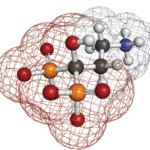NEW YORK (Reuters Health)—Hidradenitis suppurativa (HS) is associated with a significantly increased risk of adverse cardiovascular (CV) outcomes and all-cause mortality, according to Danish researchers.
HS is a chronic, inflammatory skin disease and is most common in women. It is typically diagnosed after long delays, Dr. Alexander Egeberg of the University of Copenhagen and colleagues note in JAMA Dermatology, online on Feb. 12.
“Previous studies from other inflammatory disorders, such as psoriasis, have suggested that their cardiovascular risk factors appear to be markedly undertreated in clinical practice,” Dr. Egeberg told Reuters Health by email. “Our findings therefore warrant increased focus on cardiovascular risk and modifiable risk factors in patients with HS.”
To investigate its possible consequences, the researchers studied data on almost 6,000 patients (73% women) with a hospital-based HS diagnosis, and more than 29,000 matched controls.
Over a mean follow-up of 7.1 years there were 62 myocardial infarctions in the HS group and 138 in controls giving an adjusted independent risk ratio of 1.57 (p=0.005).
There were 74 ischemic strokes in the HS group and 208 in controls (IRR, 1.33; p=0.04). CV-associated death was also more likely among HS patients (IRR, 1.95; p<0.001) as were major adverse CV events (IRR, 1.53; p=0.001) and all-cause mortality (IRR, 1.35; p=0.005).
The researchers then went on to compare the HS patients with more than 13,000 patients with severe psoriasis. After adjustment, both groups had similarly elevated risks of outcomes including stroke and MI, but the HS group had a significantly increased risk of CV-associated death (IRR 1.58).
Among limitations of the study, the researchers note, is “that patients with HS seen in hospital settings have more comorbidities than do those sampled from a population setting.”
However, given that HS was “associated with a significantly increased risk of adverse CV outcomes and all-cause mortality independent of measured confounders,” they call for “increased awareness of this association and for studies of its clinical consequences.”
Commenting on the findings by email, Dr. F.W. Danby of Manchester, N.H., who is president of the Hidradenitis Suppurativa Foundation, told Reuters Health that, “Patients with HS are known to run low levels of vitamin D3.” In turn, “Low levels of vitamin D3 are associated with increased cardiac risk.”
Additional study may be required, but, said Dr. Danby, “Vitamin D3 supplementation is now recommended for patients with HS.”

